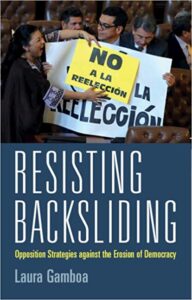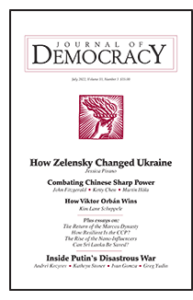 Public comments this week from two of Latin America’s most prominent left-wing politicians suggest changes are afoot in how they plan to approach the Venezuelan government’s democratic backsliding—the core issue behind the political, economic, and humanitarian crisis that has prompted over 6 million people to flee the country since around 2014, notes Catherine Osborn.
Public comments this week from two of Latin America’s most prominent left-wing politicians suggest changes are afoot in how they plan to approach the Venezuelan government’s democratic backsliding—the core issue behind the political, economic, and humanitarian crisis that has prompted over 6 million people to flee the country since around 2014, notes Catherine Osborn.
Colombian President Gustavo Petro said that he would not comply with a request to extradite Venezuelan opposition activists sheltering on Colombian soil and called Maduro a “very conservative member of the most regressive factions in global politics.” Brazilian presidential front-runner (and former president) Luiz Inácio Lula da Silva said that he supports free elections in Venezuela so that it can see “the alteration of power,” she writes for Foreign Policy.
Some 25 autocrats were elected in Latin America between 1978 and 2018, notes Laura Gamboa, author of Resisting Backsliding: Opposition Strategies against the Erosion of Democracy.
 The case of Venezuela highlights the conundrum facing democratic opposition strategists, she tells Democracy Paradox.
The case of Venezuela highlights the conundrum facing democratic opposition strategists, she tells Democracy Paradox.
“Even if the country had a quick return to democracy [following an attempted coup], the consequences of the radical extra institutional strategy would have forced the opposition to choose between allowing Chávez to compete and win elections again or ban him from running for office hindering Venezuela’s transition to democracy.”
This reminds us that if you take undemocratic means to try to get rid of an undemocratic leader, you’re in a difficult position, because the road to autocracy is going to be a lot easier from there than the road back towards democracy, adds Gamboa, author of “The Peace Process and Colombia’s Elections” in the Journal of Democracy. RTWT







